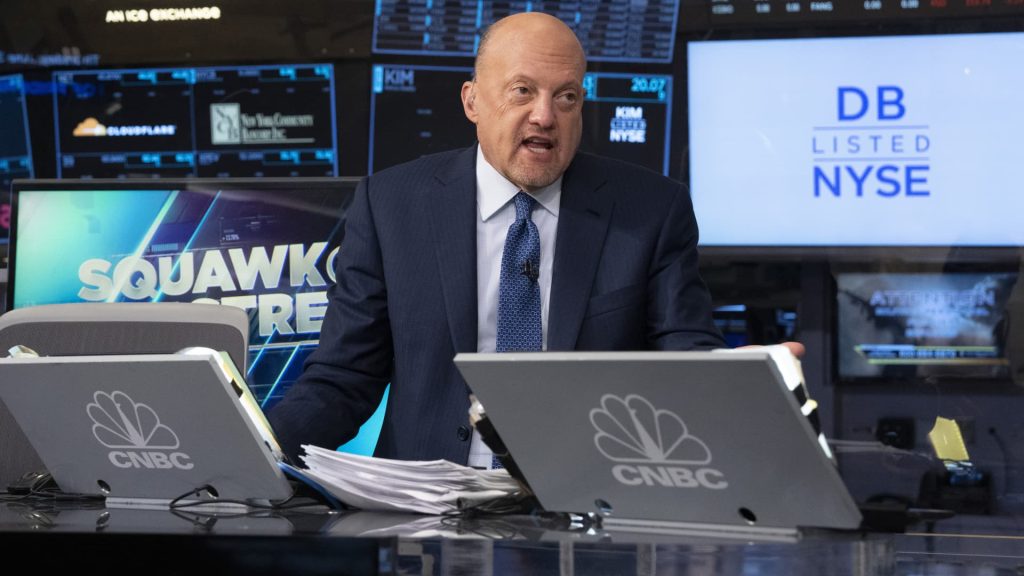CNBC’s Jim Cramer said Monday that CEOs and business leaders are watching what they say publicly during the second Trump administration. “People who have historically been on the record will talk with me and say, ‘Look, I’ve got to talk off the record [not for publication]. I can’t really talk on the record ,'” Cramer said on “Squawk on the Street.” “I’ll say, why? Obvious reasons. No one even wants to say why.” In journalist lingo, “off the record means” whatever is said is not for publication, while “on the record” means the information shared can used and the source quoted by name. The obvious reason why CEOs are more hesitant to go on the record is the fear of possible retribution from the Trump administration. In recent months, it has placed restrictions on certain media outlets, including the Associated Press, for not adhering to its executive order that renamed the Gulf of Mexico the Gulf of America. Trump has targeted critics and perceived enemies in other ways. For example, a number of major law firms have committed to provide free legal work for causes Trump supports — following a spate of executive orders that targeted specific law firms that worked on a cases against Trump. Cramer’s comments Monday came during a broader talk with co-host David Faber that touched on JPMorgan CEO Jamie Dimon’s willingness to comment on current affairs, including the impacts of President Donald Trump’s shifting tariff policies . “Jamie, I think, has been one of the great constants in our world where we don’t have any,” Cramer said. “I find him, kind of, a beacon. He’s not ruffled.” In response, Faber said he is finding corporate leaders “certainly more guarded” in their public commentary than what he hears from them in private. When asked if that was true to his experience, Cramer said: “Oh my god, yes.” Cramer runs the CNBC Investing Club and hosts the evening investing show “Mad Money,” where he frequently interviews CEOs and other notable figures on Wall Street. Trump’s election victory in November was met with a wave of congratulatory messages from CEOs, particularly within the technology industry . The business community, more generally, was hopeful that Trump’s return to the White House would usher in a more friendly regulatory environment that stimulated economic activity and a boom in dealmaking following stepped-up antitrust scrutiny during the Biden administration. In response to a request for comment, White House spokesman Kush Desai wrote in an email: “Industry leaders have already responded to President Trump and his America First economic agenda of tariffs, deregulation, tax cuts, and domestic energy production with trillions in historic investment commitments. Robust jobs reports and a March inflation report that showed a drop in prices for the first time in years further reinforce the business community’s confidence in President Trump.” JPMorgan declined to comment. Trump’s aggressive and evolving tariff policy has contributed to a rise in economic uncertainty and a growing belief among CEOs that the U.S. will encounter an economic downturn later this year. Recent results from U.S. investment banks showed that, for now, the dealmaking boom has yet to materialize. Meanwhile, American voters also have soured on Trump’s handling of the economy, a CNBC survey published Saturday found .


